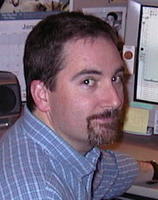I've worked with some companies who meet a lot. Some people say, for instance, "I didn't get anything done today. One meeting after another." Others actually believe they get most of their work done in meetings.
What makes the difference?
Does any of this sound familiar?
No agenda is sent around before the meeting.
Or, no one reads the agenda prior to the meeting.
No briefing documents are prepared and distributed.
Or, no one reads the briefing docs prior to the meeting.
There's no clear objective for the meeting.
There's no one leading the meeting.
One or more of the participants contributes nothing to the discussion.
At our little company we rely on meetings to move something from one point to the next. Sometimes a BURRIS meeting takes place online, sometimes on the phone, and sometimes, of course, face-to-face in a traditional conference setting. (These are usually the most productive, but also the longest.)
After one particularly unproductive meeting the other day, I made some notes to myself in hopes of trying to understand what went wrong. (Seems every few years - out of frustration - I do this very thing.)
Here are my latest thoughts about meetings:
1. Meetings should be scheduled in time for everyone you need to be able to attend. Coming into the office today thinking you can have 100% attendance at the time you wish later on the same day...it probably won't happen.
2. Meetings, of course, need a start time, but they also need an end time. How else can you plan around it?
3. There should always be an agenda, and it needs to be distributed in plenty of time for meeting members to review it, think about it, even make suggestions or ask questions, add to it or suggest something be eliminated.
4. Everyone invited to the meeting should know why he or she is there...and what his or her role is during and after the meeting. If you're in a meeting and you don't play a part, it's your own fault. If you don't know why you're there, ask the person who called the meeting.
5. Don't ever assume someone else is taking the notes you'll want or need later. He or she may be assuming the same thing.
6. It's okay to allow yourself to be distracted, okay to read email or do other things when you're not needed. (Seems there are always tangents one or more get off on.) But keep up with the action well enough to know when things are getting back on path.
7. Speaking of distractions, if you're going to bring your laptop, your digital camera, your voice recorder - all the little tools we love to carry about - make sure there's at least a possibility that your tools help add value and/or benefit the group. Visit a website relevant to the discussion. Take a digital photo of a white board before it's erased. (You get the idea.)
8. It's always good to summarize not only what's been decided, but also what needs to be done next. If it appears everyone might slip away before this happens, STOP THEM! Maybe it's not really your job to do the summary, but be prepared to do it if no one else steps up. And before the meeting closes, make sure you've actually finished. If items on the agenda haven't been discussed, decide what to do about them.
(This won't surprise those who know me:)
9. Start on time, and, if at all possible, end early. (Some of us have other meetings to get to.) It's more than courteous (but it is that too); it's more productive for all involved.
10. Finally, don't allow meetings to become one- or two-way conversations. The best meetings are opportunities for collaboration, festivals for expression. Not an expert on the luxury market yourself? That's okay, as long as you have a few thoughts you can share, maybe as a consumer, maybe an observation about friends or relatives.






